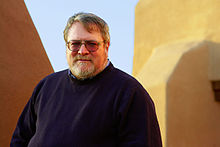 Dr. Roger Jones
Dr. Roger Jones
Research Fellow at the Center for Complex Systems and Enterprises at Stevens Institute of Technology
Roger D. Jones is an American physicist and entrepreneur. His current appointment is with the Stevens Institute of Technology in Hoboken, NJ, USA.
Jones, trained in physics at Dartmouth College, Jones worked as a staff physicist at Los Alamos National Laboratory from 1979 to 1995. His primary research interests were in laser fusion and machine learning.
In the early nineties he headed projects that applied his machine learning inventions to technical problems in the private sector. In 1995 in collaboration with Citibank, Jones co-founded the Center for Adaptive Systems Applications (CASA), a company that applied neural network and adaptive technology to consumer banking. CASA was acquired by HNC Software in March 2000, at the peak of the dotcom boom. HNC Software was subsequently acquired by Fair Isaac Corporation. Much of the technology developed at CASA became part of the credit scoring offerings of Fair Isaac.
Jones along with other Santa Fe scientists and entrepreneurs such as Doyne Farmer, Norman Packard, Stuart Kauffman, and David Weininger founded several other high-technology startup companies in the emerging Santa Fe technology community, dubbed by Wired Magazine as the “Info Mesa.” Much of the effort of these startups focused on finance and the catastrophic reinsurance industry. By 2004 the companies Jones co-founded merged into a single company, Qforma, Inc., that focused on adaptive and predictive technologies for the pharmaceutical industry. In June of 2013 Qforma merged with SkilaMederi.
Jones’s current research interests are in X-Events (extreme events), serious video games, and biological intracellular signaling. He recently co-authored the book Confronting Complexity with John Casti and Michael Pennock. His serious video games are being developed and have been adopted by the University of North Carolina and the University of New Mexico, as well as by the U.S. government. Jones’s recent scientific publications examine the role of cells as biological computers.
